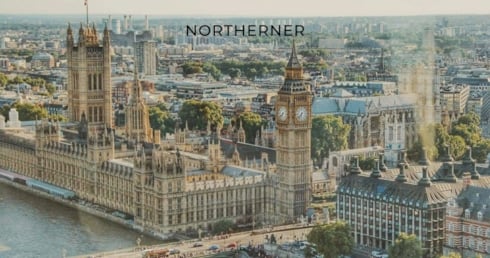Nearly Half of Gen Z Think the UK is Becoming a ‘Nanny State’
Survey by researchers from Northerner uncovers the UK public's response to expanding government regulation.

Key Points
- 41% of Brits and 47% of Gen Z Brits believe the UK is becoming a nanny state
- Highlights growing discomfort with ever-increasing government regulation over personal choices
Is Britain Turning into a Nanny State? Gen Z Survey Results 2025
Over recent years, there has been a wave of new regulations introduced in the UK under the banner of improving public health. The objective in some cases has been to regulate what have traditionally been considered people’s private lives and personal choices. These include mandatory calorie labelling on menus, the banning of disposable vapes, and the banning of advertisements for so-called junk food on TV before 9 pm. To better understand the UK public’s perspectives on this trend of increasing regulation, the team at Northerner commissioned a survey of 2000 UK citizens in August 2025. The survey asked people if they agreed or disagreed with the statement.
"I think the UK is becoming a nanny state when it comes to personal lifestyle choices."
The results were revealing.
41% of respondents agreed that the UK is becoming a nanny state, but more surprisingly, it was people aged 18-24 who felt the most strongly about the issue. 47% of this age group agreed that the UK is becoming a nanny state. Concerns about the UK turning into a nanny state have traditionally been associated with older or more conservative voters, but this survey suggests that younger generations may also be showing signs of fatigue with increasing state control.
By contrast, only 32% of those aged 45 to 54 agreed that the UK was becoming a nanny state, making them the least likely of any age group to share this view. This generational divide points to shifting attitudes among younger Brits, who appear to be more resistant to increased government regulation than one might expect.
Why Gen Z Feels the Pinch of New Health Rules
It seems a significant proportion of this demographic is becoming frustrated with ever-increasing regulation. Younger voters are often associated with more progressive political parties and policies, but a poll by More in Common found that 25% of 18 to 24-year-olds and 29% of 25 to 34-year-olds may vote for Reform, a party that has an objective to scale back nanny state-style policies.
This sentiment reflects a broader trend. The UK ranks 7th out of 29 countries in the 2025 Nanny State Index, which measures levels of government intervention on lifestyle choices such as food, alcohol, smoking and vaping. The ranking means the UK is considered in the ‘least free’ category and has a much stronger tendency towards nanny state policies than many of its European neighbours in terms of lifestyle regulation.
"When 41% of the public says they believe the UK is becoming a nanny state, policymakers would be wise to pay attention. It is a fine line between protecting and controlling the public, and it seems many people feel this line is being crossed. The reality is that the ‘positive’ effects of many nanny state policies have not materialised. For example, regulations like calorie labelling on menus or the disposable vape ban have not delivered the expected results. If the public does not see any real improvement to their lives from additional regulations, then it is reasonable for them to question whether the UK is becoming a nanny state, especially when there are so many big challenges that need to be addressed."
